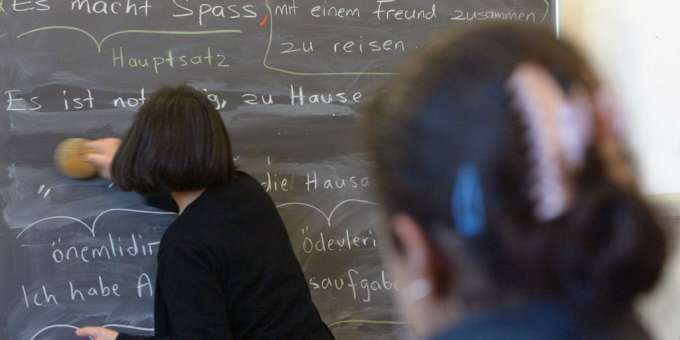Mathematics – Opinions differ when it comes to school subjects, and talented people are often referred to as nerds, as non-professionals. Guest contribution from Clarita Koons Montessori School.
The basics in brief
- Clarita Koons is the founder and director of a Montessori Kindergarten in Feldmelen (ZH).
- The therapy teacher has thought about the number 1 hate topic in school, math.
Anyone who loves math is often referred to as a nerd or a nerd. But why is this subject so unpleasant? If you ask young people why so many people hate math, they will say something like, “You can only do so much with math at school.”
Frustrated children and adults refer to characters who have become successful and known without (mathematics) education – Steve Jobs And Mark Zuckerberg About both of them left school. Or they say, “My tablet or mobile phone can calculate how much I have to pay.” It has been overlooked that mathematics is not just an essential skill for high school entrance or vocational training.

We also encounter it in everyday life: when shopping, paying bills, and while at it Completing the tax return. Since the cell phone does not always or immediately work, it is a feature in the store, for example, if we can assess whether we have paid enough or too much for the products purchased. In addition, mathematics trains thinking. Anyone with a mathematical understanding not only improves in everyday situations, but also understands complex problem solving and usually has a successful career.
Big differences when entering school
Many people hate math right from the start. And this is despite the fact that elementary school mainly teaches real-world mathematics that can be used in everyday life. Some learners and teachers believe that students are more motivated to work if math tasks are more application-oriented. But they are wrong. Aversion has other causes: Even when they start school, children have markedly unequal skills.

For some, the concept of quantity and number from zero to ten already exists. Others use their fingers to count from one to five. Apparently, completely apart from this, the same educational content has been taught to all peers at the same time in school for decades (!). It has been shown that this over- or under-demand is required by about two-thirds of children and adolescents. The result? The first treatments are described in kindergarten. This is neither contemporary nor sustainable.
It must be accepted: in schools, individuality is not implemented consistently enough. To change this, it is not necessary to make math lessons more suitable for everyday use and teachers do not have to show more commitment or teach “carefully”. Instead, learners of this culturally important subject should be given the freedom to decide for themselves when they want to engage with individual learning content.
merging eyeliner
How can this be implemented specifically in a class? The magic word is exclusivity. Educational universities and modern curricula have always strongly advocated this. However, it is not implemented consistently in schools: pupils are only allowed to work at their own pace in mathematics on time-limited projects, for example with homework or based on weekly plans.
He said A contradiction in the development of the school This is not enough to do justice to children and young people. Because even when working with weekly plans, people of the same age are repeatedly collected in the same learning site and everyone must take the same test at the same time for the same educational goal. This is unfair because it keeps the same kids from failing.

We have to say goodbye to learner-oriented teaching and we have to finally give them more responsibility for their own learning and let them freely decide for themselves when to write a test on any subject. This is the only way to act with intrinsic motivation and sustainable success.
frustration and Hass It is replaced by the endless joy of learning and self-confidence. In schools that operate in this way, it becomes clear, first of all, that the stigma of children who are less athletically gifted is disappearing. Second, retain motivation and the joy of learning. And thirdly: the mathematically gifted are given more appropriate support and do not turn to the minimum.

“Tv expert. Hardcore creator. Extreme music fan. Lifelong twitter geek. Certified travel enthusiast. Baconaholic. Pop culture nerd. Reader. Freelance student.”






More Stories
Immunotherapy as conversion therapy
How did life begin on Earth? Munich researchers find important clues
Principles and features of the folk nutritional principle